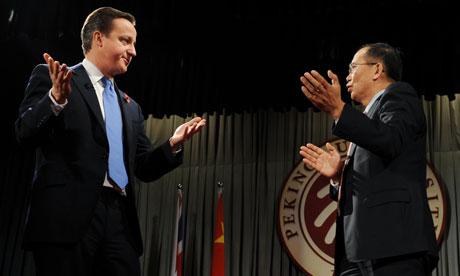PM treads a fine line between upholding values and preaching.
I thoroughly loathed the type of hectoring, preaching foreign policy practised under the Labour government. David Miliband, an FCO minister prepared to offer his self-righteous and often deeply ignorant tuppence-worth on almost any internal matter, affecting almost any country, typified that approach.
William Hague set out his template for foreign policy, preferring genuine diplomacy to the megaphone variety and placing British interests at its heart. The watchwords were realism and trade.
Sure enough he's overseen an instant improvement and there are signs that it is already paying dividends. The new government has been quick to identify emerging powers with whom a warm relationship is key.
Russia, India and Turkey have already been targeted, with some success. China is, however, the foremost priority in this regard and the extent and seniority of the British delegation in Beijing underlines its importance.
The first instinct of a conservative foreign policy (in the best sense) should be respectfulness to other nations and other ways of doing things. That’s not to be confused with obsequiousness and there’s no reason why partnership should not be accompanied by a certain amount of candour. So far the coalition has done a decent job of striking the correct note.
And, despite my misgivings, on this occasion I think the Prime Minister just about got the balance right too. He stressed that he could not claim any ’moral superiority’ and acknowledged the unique difficulties of governing a country with a population exceeding 1.3 billion. It’s a highly pertinent point. Look at the centrifugal forces which nationality and regionalism cause in a small country, like the United Kingdom.
Cameron is able to claim that he upheld and promoted the values of Britain’s government, without proselytising or hectoring. There‘s a fine line between the two, however, and the PM needs to tread it carefully.

Comments